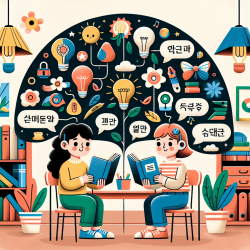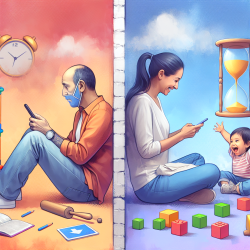Introduction
The importance of a supportive home literacy environment (HLE) in fostering language proficiency in bilingual children cannot be overstated. Recent research by Kim and Yim (2024) delves into the HLE's influence on early literacy and vocabulary skills in Korean–English bilingual children residing in Australia. This blog post aims to explore the study's findings and discuss how practitioners can apply these insights to enhance bilingual literacy outcomes.
Key Findings from the Study
The study revealed that parents tend to adopt different literacy practices for Korean and English. Korean literacy practices were more indirect, with an emphasis on providing abundant literacy resources, whereas English literacy practices were more direct and instructional. This difference in approach led to higher proficiency in English letter name knowledge among children, compared to Korean.
Interestingly, the study found that the number of Korean books at home positively impacted English vocabulary skills, suggesting that parents might provide more effective linguistic scaffolding through books in their native language. Furthermore, the study highlighted the importance of active and explicit literacy practices for Korean literacy development, while indirect exposure was sufficient for English literacy skills.
Practical Implications for Practitioners
Practitioners working with bilingual children can draw several actionable insights from this study:
- Encourage Active Literacy Practices: For heritage languages like Korean, practitioners should encourage parents to engage in active and explicit literacy practices, such as direct instruction and interactive book reading, to foster literacy development.
- Utilize Native Language Resources: Encourage parents to use books in their native language to provide effective scaffolding and enhance vocabulary development in both languages.
- Balance Literacy Exposure: While indirect exposure is beneficial for dominant languages, practitioners should emphasize the importance of balancing literacy exposure to support conceptual vocabulary development.
Encouraging Further Research
The study underscores the need for further research into the dynamics of bilingual home literacy environments. Future studies could explore how parental language proficiency, children's interactive behaviors during book reading, and socio-economic factors influence bilingual literacy development.
To read the original research paper, please follow this link: Exploring the influence of the home literacy environment on early literacy and vocabulary skills in Korean–English bilingual children.










